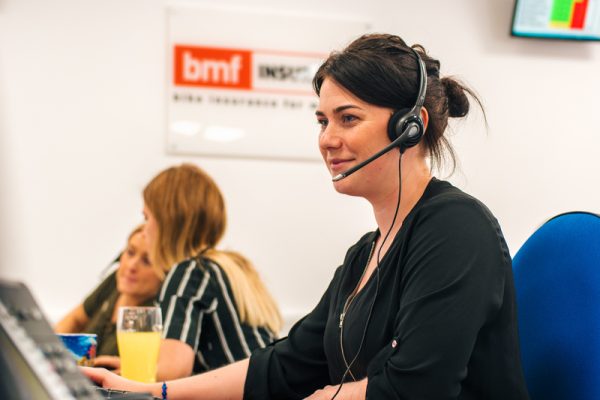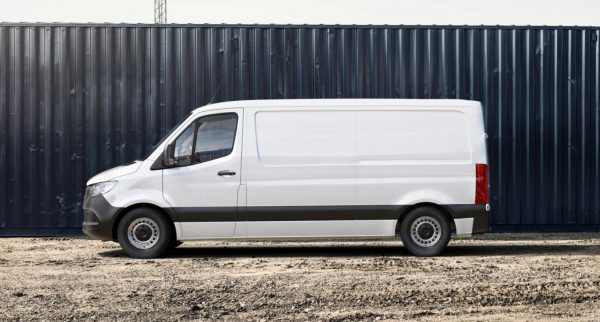What are the cheapest vans to insure?

If youâre one of the thousands of van drivers delivering goods on UK roads, you know how important your vehicle is to your livelihood. However, not all vans are cheap to insure.
Thatâs why the commercial van insurance experts at Adrian Flux have compiled a list of the cheapest vans to insure, as well as detailing the important aspects insurers look at when calculating the cost of your premium.
Whether you use your van for personal or business use, here is what you need to know about cheap insurance for vans.
1. Citroen Berlingo
The Citroen Berlingo has an engine size ranging from 1360 to 1997CC. The smaller engine size has a smaller max payload, which may be needed for some jobs. But with the van being placed in group one, it makes it one of the cheapest most efficient vans around. However, a higher max payload can push this all the way up to group eight if required.
2. Ford Fiesta Van
It shouldnât come as a surprise that the cheapest Ford van to insure is also one of the smallest. The 2013 model year Fiesta van starts in group one, which gets you the 1.5-litre TDCi model in either super frugal Econetic or sharp looking Sport guises. The 1.25-litre petrol version is also in group 1E â the âEâ means it exceeds safety body Thatchamâs security requirements â so it has been bumped down into a lower group. At worst, youâre looking at group 2E for the 1.6 TDCi Sport model.
3. Vauxhall Corsa Van
Vauxhall Corsa vans are small and compact, with a great return on fuel economy. Based on the regular Corsa car, the Corsavan is nimble and easy to manoeuvre in tight spaces, making it ideal for small businesses working in and around small towns and city centres, perfect for local delivery drivers. The Corsa van will place you in insurance group one.
4. Vauxhall Combo
Depending on the model you buy the Vauxhall Combo can fall between insurance groups one to four. The Vauxhall Combo comes in two lengths and one roof height (L1 H1 and L2 H1), and there’s also a Crew Van based on the L2 H1 version. There are three trims available: Edition, Sportive and Limited Edition Nav. The basic Edition is designed to cater for fleet buyers, but is still pretty well equipped, while the Sportive and LE Nav vans bump up the kit count for smaller business users.
How to get cheap insurance for your van

Van insurance is determined by a range of different factors, including personal data about yourself, including your age, how long you have been driving, your no claims bonus and where you live, to name a few.
However, there are some pointers which could help you find a van which is cheaper to insure than you might expect.
The smaller the van the better
A general rule of thumb is, the smaller the van, the cheaper it will be to insure. If your job doesnât require you to use a large van, then youâre best off buying a smaller one. Entry level vans with a single panel are even better as they are often cheaper to buy than their higher spec counterparts, which means theyâre cheaper to replace, driving your premium lower.
Try not to modify your van
If you have modified your van, or have purchased a van that has been modified in some way, this could cause the insurance price to rise. Often a van that has been modified will be more expensive to insure, as the insurer may find it tricky to cover the cost of getting a replacement van to the same state as the original, if your van has been changed from the manufacturersâ original specification.
However, some modifications can drive down the price of your insurance, so itâs always best to check with a mod specialist such as Adrian Flux to see how you can save money.
The size of your engine can make a big difference

A smaller engine, as with cars, often means that insurance premiums are cheaper as, in the eyes of insurance providers, the less powerful the engine the less risk of a claim being made.
The last thing that a van driver needs is their vehicle to be underpowered for the tasks they do regularly, so only choose a van with the lowest engine category that can still do the job you need it for.
How secure is your van?
Insurers will also take into account how expensive your van is, as more expensive vans are more likely to be stolen. They will also cross-reference this with where your van is stored overnight, be that on a drive, in a street or in a garage. Having the latest security features though can help reduce your premium, so be sure to declare these details when asked.
Cheap vans to insure
Whilst the above information can help you narrow down your list of potential vans to buy, there are of course some vans which are seen as the cheapest to insure. The above factors can help, but it is important to remember that your own driving history can affect your insurance premium.
Another important thing to note is once the above factors have been accounted for, the Association of British Insurers (ABI) places each van into an insurance group ranging from 1 to 50. Older vans are placed in a scale from one to 20, while newer vans are placed in groups 21 to 50. Essentially whether your van is new or old, the higher the number, the more expensive your van will be to insure.
Van insurance you can trust
Donât just use comparison sites or online quotes for your van insurance, because their quotes will be generated by a computer and canât be altered.
By talking to an insurance specialist on the phone you can make sure youâre answering all the questions correctly, and have someone on your side, helping find ways to save you money and get the very best cover.
The best Adrian Flux van insurance deals are usually done over the phone â 79.5% of all customers receiving an online quote in July 2020 could have obtained a cheaper quote over the phone, based on the information they provided. Call 0800 141 2794 or request a call-back at a time that suits you.






